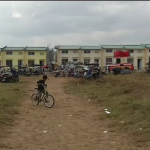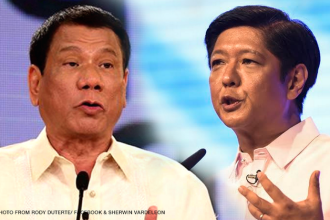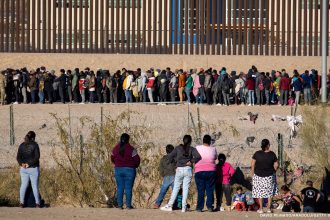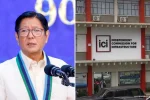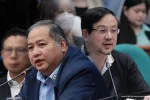
Metro Manila (CNN Philippines, January 10) — The government is constructing 170,000 housing units in Metro Manila for informal settler families with a monthly payment of P5,000 or less.
Secretary Benjamin “Benhur” Abalos Jr. of the Department of the Interior and Local Government (DILG) called this the most affordable price for housing in the country, adding that this is a result of the efforts of multiple government agencies.
Secretary Jose Acuzar of the Department of Human Settlements and Urban Development (DHSUD) told a press briefing that the Marcos administration is working to make housing more accessible and affordable for underprivileged Filipinos.
“Basta po ito ay mas mababa po sa dati…Ito po bumababa between P5,000 pababa po,” Acuzar said, referring to the monthly payment for the housing unit. “Puwedeng P2,500, parang umuupa ka lang po.”
[Translation: This is lower than the previous housing programs of the government. This may range from P5,000 to P2,500. It’s like the current rental rates.]
Under the Pambansang Pabahay Para sa Pilipino Program, the DHSUD, the DILG, the Metropolitan Manila Development Authority, and local government units in Metro Manila are working together to build housing for the homeless.
The local governments are in charge of determining the beneficiaries, as well as staging areas for the projects. These staging areas were the container vans to be used by families as temporary housing during the construction period, seen to last for one to two years.
“Kapag magkaroon po tayo ng staging area na siyang pinaplano po ng DHSUD at ng DILG, hindi na ho sila kailangan lumayo pa,” San Juan Mayor Francis Zamora said. “Doon mismo sa site kung saan mismo sila dating nakatira at kung saan gagawin ang kanilang pabahay, doon na rin po ang staging area or within just a few meters from that same location.”
[Translation: When we have the staging area that is being planned by the DHSUD and the DILG, they do not need to go far. They will be designated to the site where they are originally staying. We will make the housing near their area or within just a few meters from that same location.]
Local government officials will look at government or privately owned properties that are considered “idle land” for these staging areas.
Abalos emphasized that the government is focusing on making sure informal settler families will not have to move too far from their present address.
He also stressed that those availing of the units will receive official documents for the property.
“Dapat ilalagay natin ang sarili natin doon sa informal settler na lilipat,” Abalos said. “Siyempre mayroon siyang haka-haka — totoo ba ito? May papeles ba ito? Saan ako ilalagay? Papaano ‘yung duration? Papaano mga anak ko? Papaano eskuwelahan? Papaano trabaho ko? Lahat po ‘yan ay sasagutin natin.”
[Translation: We should put ourselves in the shoes of the informal settlers to better understand their situation. Of course, they have doubts and questions, does this have papers? Where will they bring us? How long will it take? How about my children? How about my children’s schooling. How about my work? We will answer all these questions.]
He also noted that officials are already looking for pilot areas for the staging areas.
“Magpa-prioritize lang muna po kami ng pilot area para po kasi mas madaling hikayatin lahat na sumali at ma-address ‘yung mga apprehensions na sinabi ni Sir Benhur kung mayroon nang maipakita na successful na area na nailipat in-city, temporary relocation. And then ‘yung permanent relocation ‘pag nakita nila na maganda, maayos at mura lamang itong pabahay na ‘to,” MMDA Acting Chairman Don Artes said.
[Translation: We will prioritize a pilot area first so that it will be easier to encourage everyone to join and to address the apprehensions that Sir Benhur said if there is already a successful area that we can show that has been moved in-city, temporary relocation. And then the permanent relocation when they see that this housing is beautiful, neat and affordable.]
Funding will be sourced from government financial institutions and there is no fixed budget for the housing projects, as more funding will be provided when necessary, according to DHSUD.





